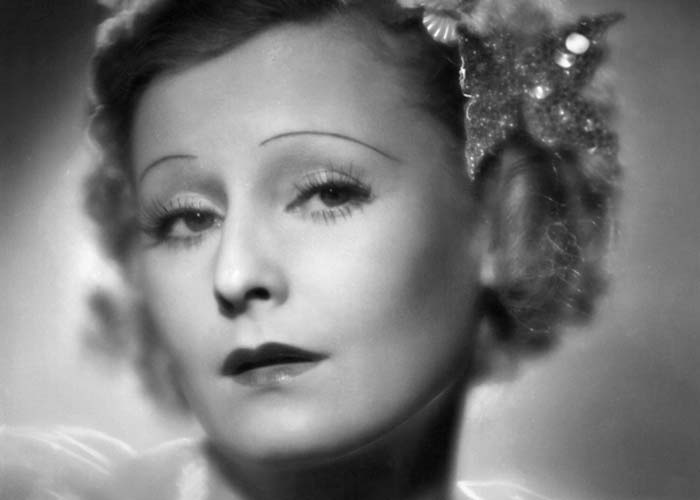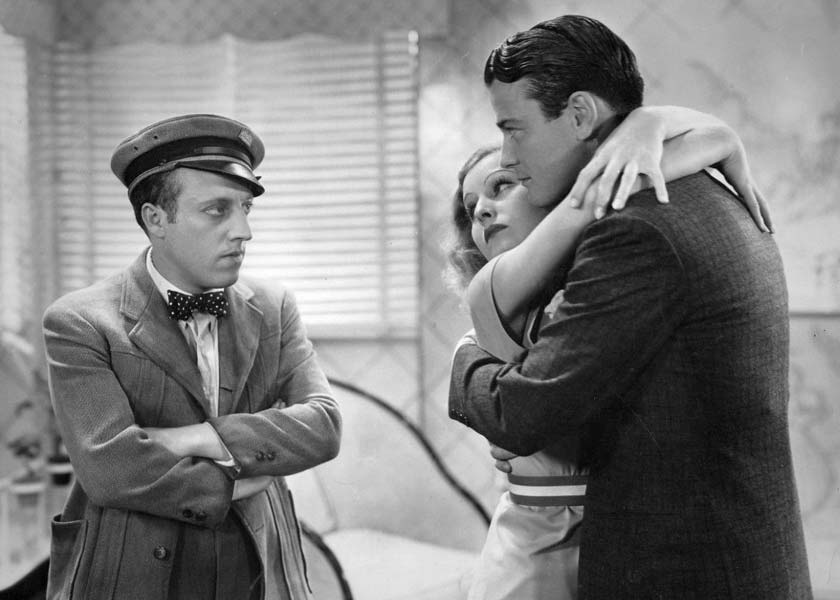Synopsis
Dan Cupid (Langdon) appears and talks about making people love one another. He had a difficult time with one pair. The girl was easy, but the man was hardened and the arrows did not penetrate him easily. Cupid points him out: Ronnie Gregory (Ayres) is going to the office of his uncle, Ellery Gregory (Henry Travers), to demand reinstatement of the allowance his uncle has cut off. Ellery refuses because Ronnie is a lazy playboy who does not work. The argument turns to women, and Ronnie states that he can transform any woman so that a rich man will want to marry her. A dowdy, unsophisticated maid, Looloo Blake (Harvey), overhears him and begs Ronnie to transform her. He refuses, but she follows him onto the street, where he relents and agrees to remodel her.
Ronnie has a coterie of young women who hang around him who agree to help him
transform Looloo. Several months later, Looloo has been refashioned into a
polished beauty. She is in love with Ronnie whose only interest is having her
marry a rich man so he can claim his allowance. Ronnie decides that his insipid
cousin, Gerald Gregory (Butterworth), is the perfect man for Looloo. At a fashion
show, Ronnie and his female followers instruct Looloo to attract Gerald by talking
about their mutual
interests, stamp collecting and vegetarianism. After
Ronnie introduces them, Looloo tells Gerald about her stamps, and when she takes
out a carrot he decides they are soul mates and kisses her. Soon they are engaged,
but Looloo still wants Ronnie.
Uncle Ellery has a pretty young fiancée who is obviously only interested in him for his money. Looloo turns her charms on Ellery who decides to withdraw from his engagement and marry her instead. She tells Ellery that she likes, but does not want to marry, him. Ronnie points out that Ellery is better off because the gold digging fiancée has been driven away. Gerald and Ellery continue to pursue Loulou. She forcefully declares that she does not want to marry either of them. Disappointed, they console each other.
At long last, Ronnie realizes that he loves Looloo. Initially, she responds coldly to his declarations of love and devotion, but soon she melts and smiles at him. They kiss. Cupid appears and applauds his success. He points to the audience and announces that he may use his arrow on one of them.
Discussion
This whimsical fantasy, a variation on George Bernard Shaw's 1913 play
Pygmalion, includes scenes in rhymed speech and song, presumably to
convey a mood of light-hearted effervescence. The presence of Cupid, who shoots
his arrows to inspire romantic love, increases the whimsy of the romantically
fantastic plot. Harry Langdon, familiar to audiences as the innocent, baby-faced
goof from such films as
The Strong Man, plays Cupid as an insubstantial and trifling god of love.
The handsome
playboy played by Lew Ayres, representing the play's Henry Higgins character,
undertakes to remake a lowly maidservant into a stylish and beautiful young woman.
Ayres’ coterie of young woman (a 1930s version of groupies) who assist him in the
transformation process are another whimsical element added to the plot. These
woman become a chorus and accompany Harvey in several songs. Harvey’s newly
acquired allure attracts Butterworth and Travers, and Ayres wins his bet. Ayres,
in love, has been conquered by his own scheming. As a final whimsical touch, Cupid
appears to claim credit for the romantic ending. Most of the fun occurs when
Butterworth and Travers are on screen.
Lilian Harvey is suitably dull as the cleaning girl and attractive and lively as the newly fashioned coquette. Lew Ayres was good-looking but too mild and boyish an actor to effectively portray the anti-hero playboy and womanizer depicted in the plot. His character transforms from womanizer to sincere lover, but he lacks the romantic fire that might have made his union with Harvey more captivating, as the screenplay obviously intended.
Always interested in new talent, Hollywood studios periodically signed actors who were popular in Europe. The American success of these actors was highly variable; some, like Marlene Dietrich and Ingrid Bergman, became superstars, while others, such as Anna Neagle and Anna Sten, made a few films and returned to Europe. Petit, pretty and vivacious, Lilian Harvey, British-born star of German cinema, seemed to have great potential for American stardom.

In 1932, Harvey starred in all three versions (German, French, and English) of the outstanding German musical comedy, Congress Dances. The English version was shown to good box office throughout the US. Based on her well-received performance, Fox signed Harvey to a contract in June 1932. In her three films made by Fox — My Lips Betray, My Weakness and I Am Suzanne! — the studio evidently attempted to present Harvey as the dainty flirt of delicate charm and gaiety as seen in Congress Dances. Difficult to repeat such a success, Harvey is appealing in her Hollywood films, but the rather fragile charm is not quite evident.
Harvey’s films did not generate strong financial returns, but her fan mail was good, and the studio had hopes that she would build an audience. In early 1934, Fox signed Harvey for three more films. She was preparing for a film, to be named Serenade, when she expressed displeasure with changes that were made to the script and requested release from her contract. Fox agreed, and by mutual agreement her new contract was terminated shortly after she signed it. Her abrupt departure from the studio may have been related to the coinciding departure from Fox of director Paul Martin, who had directed Harvey in Europe and had been working with her on the Serenade script. Harvey made one more American film, Let’s Live Tonight (1935), with Tullio Carminata for Columbia Pictures, before returning to Europe. As World War II commenced, Harvey relocated to France where she made two final films in 1940. Harvey lived in Hollywood during the remaining war years but never made another movie.
By 1933, director David Butler had been active in films for twenty years and would continue for the next thirty. Butler began his career as an actor; he signed with D.W. Griffith in 1915 and had uncredited roles in The Birth of a Nation (1915) and Intolerance (1916). As an actor, Butler appeared in over fifty silent films, occasionally as star, but mostly as a supporting player. His most notable roles are substantial parts in The Sky Pilot (1921), directed by King Vidor, and 7th Heaven (1927), directed by Frank Borzage. As silent films ended, Butler switched over to directing. Almost immediately, he had a hit with Sunnyside Up, a musical comedy starring Janet Gaynor and Charles Farrell and one of the most popular films of 1929. He specialized in comedies, with or without music, many with major stars of the 1930s, 1940s, and 1950s including Will Rogers, Bob Hope, and Bing Crosby. He also directed Doris Day in Tea for Two (1950). In 1955, as musicals were declining in popularity, Butler turned to television. From 1955 until his retirement in 1967 he directed episodes of many television series, including 58 episodes of Leave It To Beaver (1959-63). Although Butler was a competent director and made some interesting films, robust comedy was more his forte than the delicate charm reqiured of My Weakness, and he may have been unable to bring out the best of Harvey’s own unique mixture of charm and delicacy.
George Gard 'Buddy' DeSylva, who wrote the story and dialogue for My Weakness, was a multi-talented screenwriter, songwriter, and film producer. He is well-known as the lyricist of the songwriting team of Brown-Henderson-DeSylva. DeSylva, who undertook multiple functions on each of his productions, was the producer, screenwriter and musical collaborater of My Weakness. After the film was released, DeSylva curtailed his activities and generally carried out only the supervisory functions during his remaining years at Fox.

